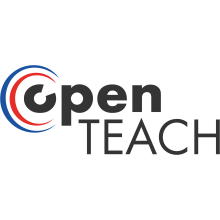
Hosted by , contributed by Kyriaki_Vakkou on 15 September 2023
Teachers across Europe are not yet fully versed in leveraging digital technology for enhancing education. As defined in the European Framework for the Digital Competence of Educators (DigCompEdu, Redecker, C., 2017), the selection, creation, modification, management, protection and sharing of digital resources, as well as the use of digital resources and tools to empower learners are at the pedagogic core of the framework. Educator’s engagement in professional collaboration, reflective practices and digital continuous professional development (CPD) enable the development of their digital competences and practices.
The need to support teachers’ initial education and CPD on the “use of ICT skills for teaching” remains highly ranked on the list of teachers’ reported training needs as presented in the Education and Training Monitor 2019 (EC, 2019). In fact, digital competences are considered essential in 3 out of 4 EU Member States, and teachers are expected to have them, yet less than 40% of teachers reported being well-prepared to use ICT for teaching. Aside from the lack of equipment teachers reported two additional barriers: a lack of teaching models to use digital technologies, and their own insufficient personal skills.
Many EU countries have been embracing the digital transformation of education. In Germany, the support for schools’ digitization is ongoing, with teachers’ education and CPD playing a crucial role. National reforms are advancing the educational practices in Portugal, however improvement of teachers’ CPD remains a challenge. In Greece, the teachers remain highly attractive but opportunities for CPD are lacking. Yet, in all three countries use of ICT in the classroom is highly heterogeneous on an overall low level, with German teachers using ICT least (Bos W., et al, 2014), and Portugal and Greece having no national-level regulation or teacher competence framework for digital literacy (EACEA/Eurydice, 2019). While ICT use is increasingly encouraged, teachers still require support to improve their digital competences. Transnational cooperation through exchange of best practices, peer learning, and evidence sharing is a proven way to support education and training, as explained in the EC’s Digital Education Action Plan 2018 (COM, 2018).
The need for Open Educational Practices (OEP) and the improvement of quality assurance mechanisms of Open Educational Resources (OER) remains crucial for the delivery of global quality education as reported by JRC (Camilleri, Anthony F.; et al, 2014) and UNESCO (UNESCO, 2020). While several initiatives have worked on creating OER and MOOCs, few have focused on the integration of teachers’ communities, tailored online training for OEP, and the adaptation of existing OER to make them more equitable, culturally relevant and inclusive for learners. The importance of enhancing distance learning and open education, as well as supporting teachers to develop their skills, and using online communities to exchange resources and practices has been highlighted during the latest COVID-19 pandemic.
The project targets pre- and in-service school teachers as the main target group and end-users. Additionally, it targets other stakeholders in the education field responsible for educators’ CPD and initial training, such as school heads, Teacher Training Institutes (TTIs), OER/OEP experts and educational organizations.
Open Teach provides a platform with training courses on OER and OEP, enabling the collection and evaluation of OER, the transnational sharing of good open education practices and the evaluation of OER/OEP by the community. Open Teach:
- offers a self-sustainable OER assessment toolkit;
- enhances open education resources and practices at schools by educating and training teachers online on the use and benefits of OER and implementation strategies and approaches to shift towards OEP;
- builds a transnational Community of Practice (CoP) around OER and OEP;
- develops a platform that connects online training to the collection and assessment of OER by the CoP
In order to achieve these objectives, the Open Teach project has built on existing OER, and moved on to reusing, adapting and evaluating them by:
- reinforcing the development of teachers’ digital competencies through the use of digital resources in their teaching practices
- training teachers to adapt OER to be more equitable and inclusive to their learners, teachers will be able to improve their teaching practices by empowering and engaging all learners.
- building a transnational community of practice for teachers around their training to experience learning as a shared construction of knowledge, where they receive and provide feedback and reviews.
- training and supporting teachers to become agents in transforming open education in their schools, local and transnational communities, through the dissemination of OER, implementation activities and experiences with OEP.